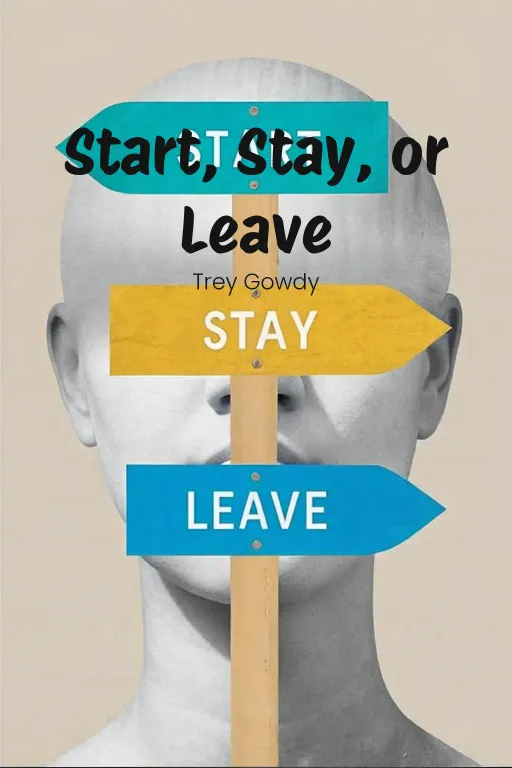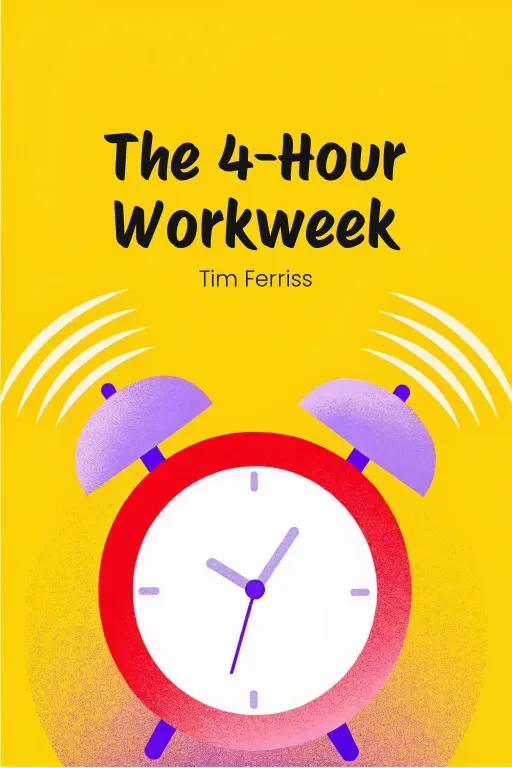
Flip Failure: Your Mindset Advantage
Podcast by Beta You with Alex and Michelle
The 15 Most Powerful Principles for Wealth, Health, and Happiness
Flip Failure: Your Mindset Advantage
Part 1
Alex: Hey everyone, welcome to the show! Today, we're diving into a question we all grapple with: what “really” makes someone successful? Is it just raw talent, dumb luck, or is there something more to it? Michelle: Or is it some kind of perfect storm? You know, like relentless hard work, a caffeine IV drip, and being in the right place at the exact right time? Alex: You’re not far off actually, Michelle. But according to Napoleon Hill’s The Science of Success, there's a much more structured approach. In this book, Hill basically gives us a blueprint for achieving our goals. He spent decades studying super successful people like Andrew Carnegie to distill these principles. It's all about cultivating the right mindset, things like unwavering faith, gratitude, and what he famously calls a Positive Mental Attitude, or PMA. Michelle: PMA, huh? The OG life hack! But Alex, Hill doesn't just preach grinning and bearing it, right? He gets into goal-setting, building solid habits, and developing real resilience, doesn’t he? Alex: Absolutely. He also tackles the tough stuff head-on. Like, how fear can completely paralyze us, or how failure, which we all dread, can actually be the best foundation for future wins. Michelle: So, he’s kind of blending that optimistic viewpoint with a dose of real-world practicality. I dig it! What's on the agenda for unpacking all of this today? Alex: We're going to break down three key takeaways from Hill's work. First, we'll explore how adopting a Positive Mental Attitude can help you see challenges as actual opportunities. Then, we'll get into the crazy powerful effect faith and strong belief can have - Hill actually calls it the 'Master Key' - to unlocking your true potential. Michelle: A shot of belief, but hopefully not just blindly skipping through the tulips, right? Alex: No way! And lastly, we’re going to talk about how failure – yes, that dreaded F-word – plays a “crucial” role in the whole success equation. Hill frames it as a stepping stone, not a dead end. Michelle: Alright, everyone, buckle up. We're about to step into the success lab here. But, fair warning, not every formula works the same for every experiment. Let's see what gems Hill has unearthed for us.
Positive Mental Attitude (PMA)
Part 2
Alex: So, let's dive right in with the cornerstone of everything—Positive Mental Attitude, or PMA. Hill sees it as the very foundation of success, that mindset that not only helps us get through tough situations but actually transforms those challenges into opportunities. It's more than just putting on a happy face; it's about actively reframing how you look at things, focusing on what's possible instead of what's blocking you. Michelle: Right, so PMA is basically the lens through which we see the world. A flawed lens gives you a Negative Mental Attitude, or NMA, right? It distorts everything. But Alex, doesn’t Hill's concept of PMA risk sounding like toxic positivity? You know, that whole "just keep smiling even when the world's falling apart" thing? Alex: That's a key point to address. Hill's version isn't about blindly saying everything's great all the time, or ignoring real problems. It's a very deliberate thing. It's about building resilience – viewing setbacks as temporary, as chances to grow rather than signs of total failure. Think of someone who doesn't get a job they interviewed for. With PMA, they don't just think, "I'm not good enough”. Instead, they ask themselves, "Okay, what can I learn from this for the next time?" Michelle: Gotcha. Turning an "I failed" into an "I'll figure it out”. Hill does seem tailor-made for today's self-help world, doesn't he? But how do we actually develop this PMA? What concrete steps can people take? Alex: Well, Hill gives us some practical tools. Top of the list is practicing gratitude. It sounds super basic, but when you really zero in on the positive things in your life, it shifts your perspective from focusing on what’s missing—scarcity—to what you already have—abundance. That simple shift rewires your brain, making you more optimistic and creative. Michelle: Gratitude, a nice idea in theory. But in practice, if someone’s facing serious hardship—financial stress, health problems, or career burnout—is "just be grateful" helpful, or does it fall a little flat? Alex: Agreed, it's not about pretending those difficulties don't exist. It's about the reframing aspect. Take S.B. Fuller, for example. He was born into poverty, the son of a tenant farmer, right? Objectively tough beginnings. But his mother instilled in him the idea that poverty wasn't a life sentence, it was a mindset. And he carried that belief, faced tons of rejection, and eventually built a thriving soap business. Michelle: Fuller’s soap story kind of feels like a superhero origin. Overcoming adversity, mentored by his mom, pure grit leading to entrepreneurial success. Is Fuller's story a bit of a product of his time? Today’s entrepreneurs grapple with so many different hurdles, systemic issues, global crises. How can PMA really adapt or scale in that context? Alex: That's a fair point, Michelle. Fuller’s mindset was powerful, but it didn’t exist in a bubble. Hill does acknowledge that PMA isn't going to magically dismantle all the barriers, it's not a cure-all for systemic injustices. But it can empower individuals to persevere and spot opportunities they might otherwise miss. Michelle: Alright, PMA creates momentum. But let's zoom in on the action items Hill suggests, beyond gratitude? Alex: Sure. Self-affirmation is a big one. Hill suggests using positive statements to build belief. Imagine looking in the mirror each morning and telling yourself, "I am capable of handling challenges," even when you're not feeling it. It’s like setting an intention for your day. Michelle: Like, pep-talking yourself before facing everyone else. Good idea – unless you start arguing with yourself in the mirror, then it’s sitcom material. What else does Hill recommend? Alex: A lot. He talks about reframing challenges—intentionally stepping back from your initial emotional reaction to assess a problem clearly. Contrast that with NMA, where you get so hung up on what you perceive as failure that you completely miss potential solutions. Take Clem Labine. People might have seen his crooked finger as a disadvantage, but he reframed it as something that gave him a competitive edge when he was pitching. Michelle: Wait, so Hill's PMA is also about thinking outside the box? Labine totally changes how we see “flaws” by turning a disadvantage into an advantage. It’s almost like a real-life Batman using tools to his crooked circumstances. Nice. Alex: Exactly. And don't forget how important it is to surround yourself with positive influences—people who model PMA. A “Master Mind,” as we’ll explore later. Positivity is infectious, so being in that kind of environment reinforces your mindset. Michelle: Okay, the skeptic in me needs to pipe up again. Could PMA ever cross over into avoidance? Could someone get so caught up in reframing and affirming that they don't take the necessary steps to fix the real problem? Alex: Good question. Hill would argue that PMA isn’t a substitute for taking action; it actually fuels it. Positivity is the propellant, not the vehicle. It reshapes how you tackle problems, so you become willing to act, even when you're scared or might fail. Michelle: Right, it's like Fuller didn't just “visualize” selling soap, he kept pushing even with the constant rejections. The PMA wasn't in the act of selling itself; it was the unwillingness to accept "no" as the end of the line, right? Alex: Precisely. Fuller was the embodiment of Hill's cornerstone of PMA – faith paired with proactive action. And you know, besides personal success, PMA has a ripple effect. Fuller's persistence became an inspiration for people from similar backgrounds, showing them the possibilities, and making his mindset a catalyst for broader change. Michelle: So, PMA isn't just inside your head—it has a community aspect. One ripple becomes a wave. Okay, Alex, consider me convinced. PMA isn’t just empty words—it's a strategy, and a self-sustaining one at that. Alex: Exactly! And now that we've built that foundation with PMA, it's a natural move to explore Hill's 'Master Key' concept—how believing in yourself and your purpose binds everything together. Ready to unlock that next piece? Michelle: Absolutely. The alchemy of belief—that's where the true magic happens, isn't it?
Faith and Belief as Catalysts
Part 3
Alex: Understanding PMA, Positive Mental Attitude, naturally leads us to explore how faith and belief act as catalysts in achieving success. Napoleon Hill called faith the “Master Key,” a transformative force, you know, that empowers individuals to really overcome obstacles and create the reality they desire. It connects with the theme of how your mindset can shape outcomes—faith not as just blind optimism, but as a deliberate force of conviction. Michelle: Right, the edge between belief and reality. But Alex, how does Hill really differentiate “faith” as a catalyst from just wishful thinking? Because there's a fine line, right? Between motivated belief and, like, the "build it in your mind and it just appears" kind of thinking. Alex: That's such a great question, Michelle. And Hill addresses that very thing! Faith, to him, isn’t passive—it's active. It’s not just like sitting quietly and hoping for a change. It's this inner certainty – so strong – that it drives you to take deliberate, purposeful action toward your goals. Think of it as bridging the internal and the external... that belief creates the energy, and the action makes it real. Michelle: Okay, so faith is like the engine roaring behind the car? You're not just idling; it propels you forward as long as you’ve got a destination in mind. Alex: Exactly! And Hill kind of shows this through some compelling examples, beginning with his own life. He recounts how Andrew Carnegie challenged him to make this huge commitment: spending 20 years studying and documenting the very principles of success by interviewing the world's most accomplished individuals—without any upfront pay. I mean, that's just… a leap. Michelle: No upfront pay? Who agrees to that? That’s like the riskiest unpaid internship ever. What made him say yes? Alex: Well, Michelle, Hill admits he hesitated at first. But he describes just having this inner voice – this surge of conviction, – you know, telling him just to answer with: “I will accept the assignment.” That moment of faith propelled him to embark on something with no guarantees but ended up influencing millions over generations. Without that internal belief in himself and the purpose of the work, it could’ve been different, you know? Michelle: Hmm. So Carnegie planted the seed, but Hill had to water it with faith while braving the drought of immediate rewards. It was a such a bold bet to place on himself. Alex: It is! And that leads into another remarkable story Hill shares, one that is almost cinematic: Edwin C. Barnes. Here's someone – no connections, no wealth, no credentials – who dreams of becoming Thomas Edison’s business partner. Instead of dismissing it, he acted on that unwavering belief. He traveled by freight train to Edison's office with nothing more than just determination. Michelle: Wait, this guy shows up at Edison’s door like, “Hey, I’m here to partner up"? That’s… audacious. What even happened after that? Alex: Barnes didn't get the partnership initially of course. Edison gave him an entry-level job, but Barnes never wavered. He believed so deeply in his vision that he treated even the smallest tasks as stepping stones. Years later, the real opportunity came when Edison needed someone to sell his new invention--the dictating machine. Others doubted it, but Barnes saw potential. He poured his energy and innovation into selling it, turned the product into this huge success. That got him to the partnership he'd imagined. Michelle: Now that's persistence. Barnes didn’t just dream; he bet on his belief well past the point where most people would’ve doubted themselves. One of those stories where you can’t help but root for the guy. Alex: Exactly. And his story encapsulates Hill’s idea: “What the mind can conceive and believe, it can achieve.” Faith is the catalyst that kept Barnes in the game long enough to seize that elusive but real finally chance. Michelle: Powerful, but I imagine there’s a flip side. What about people who have faith but just get stuck because they’re waiting for stuff to happen? Does Hill address that at all? Alex: Absolutely. He cautions readers against the trap of passive faith—just believing without taking meaningful action. Faith, according to Hill, is an act of creation. It's visualizing your goals, affirming your abilities, and importantly, taking persistent steps forward. Barnes didn't just imagine working with Edison—he acted, even if it meant starting as a nobody. Michelle: So, it sounds like Hill builds this layered recipe for faith – the visualization creates clarity, the affirmations build internal confidence, and the action brings dreams into physical form. But now I’m wondering – how do people develop faith when self-doubt looms large? Confidence isn’t exactly an on-off switch for most, right? Alex: So true. And that's why Hill offers tools to build it piece by piece. Visualization is huge. Constantly picturing your goal as though it’s already achieved rewires your subconscious mind. Aligns your internal beliefs with the steps you need to take. Then, there are affirmations... repeating statements like: "I am capable of achieving great things". They serve to counteract negative self-talk and reinforce your commitment. Finally, there's action itself. Faith grows stronger the more that you see the tangible results from taking the smallest steps forward. It's like building a muscle, you know? Strengthening it with use. Michelle: Visualization, affirmations, and action—basically the holy trinity of self-belief. I can see how you need all three. Visualization without action feels like daydreaming, and action without belief might burn out fast. But, you know me, I have to ask again – when life throws curveballs, does faith really hold up? Alex: Hill argues that it does. He portrays faith not just as motivation but as a shield, in a way, against setbacks. It builds resilience, helping you reinterpret those failures as lessons rather than a complete defeat. He shares how his task from Carnegie was riddled with challenges – doubt, financial struggles, even internal questioning. Yet, his belief in the project kept him anchored. Michelle: That makes sense. Barnes, too, must’ve had days of doubt, working on menial tasks while holding onto a big vision. Faith reframes obstacles as steps in the process. Alex: Exactly. Faith isn't really about avoiding challenges—it's about transcending them. And when paired with clarity and persistence, it transforms what seems impossible into something within in your reach.
Overcoming Failure and Learning from Defeat
Part 4
Alex: So, building on faith, it makes sense to look at fear—how to tackle it using reason and action. This brings us to one of Hill’s really powerful ideas: learning from failure. He wants us to see failure as a natural, even necessary, part of progress, not the end of the line. He uses examples, like Edison and Lincoln, to show how setbacks, when you approach them with the right attitude, they can actually be the starting point for amazing things. Michelle: Aha, so failure isn't the villain; it's more like the annoying, but ultimately wise, mentor? Nice spin, although it’s much easier said than done. Let’s take Edison, for example. Alex, how many failed lightbulbs are we talking about before he got it right? Alex: Oh, it was thousands, Michelle. Edison famously said he found "10,000 ways that won’t work". He treated each failure as valuable information. Ultimately, that iterative process led to the incandescent light bulb. It’s a great reminder that failure can actually light the way forward. Michelle: Wow, that's next-level commitment. Most of us would probably throw in the towel after, what, 50 tries? Maybe 100 if we’re feeling ambitious? Edison's story makes me wonder if it was pure optimism driving him or something more. Alex: Well, optimism definitely played a role, but Hill argues that it was Edison’s resilience and faith in his work that set him apart. It wasn’t just about blindly pushing forward, but he was really learning from each setback. Every failure gave him information about what didn’t work, which informed his next steps. That process of fine-tuning is really key. Michelle: So, it’s like a scientific method for dealing with failure. Instead of taking it personally, you treat it as an experiment. Smart. But, playing devil's advocate here, not everyone has the luxury of failing 10,000 times. Money, time—how does Hill account for those real-world constraints? Alex: That’s a great point, Michelle. Hill’s not saying everyone can or should take on Edison-sized risks. But his principle applies no matter the scale. The idea is to treat failure as feedback, and then adapt accordingly. For example, Hill also talks about Abraham Lincoln. His resilience was more about navigating personal and political defeats over many years. Michelle: Right, Lincoln—the ultimate comeback kid. He lost jobs, failed in business, and lost elections, repeatedly. Talk about a tough resume before becoming President. Alex: Exactly! But those struggles shaped him into the leader he became. Lincoln’s earlier losses taught him humility, patience, and gave him a broader perspective. These were invaluable when he led the country through the Civil War. Hill argues that without those failures, Lincoln might not have had the strength and character to navigate such a dark period in American history. Michelle: So, failure wasn’t just a detour for Lincoln—it was boot camp! But does Hill give any real advice on how to stomach repeated defeats without losing hope? Because, let's be real, resilience isn’t always easy to find. Alex: He does! Hill has a few strategies for turning failure into growth. First, reframe your perspective. Don’t see failure as a reflection of who you are, but as a step in the process. Second, actively learn from each setback. Figure out exactly what went wrong, and how to improve next time. And third, take action. Don’t procrastinate or dwell on the failure; instead, move forward with purpose. Michelle: I like the second point there, about extracting lessons. The Edison approach, right? You analyze, adjust, and keep going. But that third one is tough, too. The fear of failing again can be paralyzing. It’s as if Hill is saying, "Get back in the ring before fear ruins everything." Alex: Exactly! Hill emphasizes that action builds confidence. Resilience is like a muscle—you strengthen it by showing up, even when things look difficult. He says that every failure contains the "seed of an equivalent or greater benefit," meaning that even in tough times, there’s growth potential. Take Marshall Field, for instance, the retail tycoon. After the Great Chicago Fire destroyed his business, he didn't give up. He rebuilt, innovated, and created an even bigger retail empire. Michelle: Now that's a literal "rising from the ashes" story. He could have easily quit, but he saw the disaster as a chance to start fresh. Alex, that's inspiring, but how does one develop the ability to see an opportunity in chaos? Alex: For Hill, it’s all about mindset. He emphasizes adaptability and vision. Field didn’t just rebuild; he identified gaps and reimagined his business on a grander scale. Hill’s lessons remind us that setbacks often force us to innovate and grow in ways we never would have considered otherwise. Michelle: So, failure isn't just the unwelcome guest that won't leave—it's also the handyman who shows up unexpectedly and strengthens your foundations. Intriguing. Any other tricks from Hill to navigate failure? Alex: Absolutely! Beyond adaptability, Hill emphasizes surrounding yourself with supportive people—your own "Master Mind" group. Having a network that encourages resilience and creativity makes weathering failure much less lonely. And, of course, building resilience through small, consistent actions builds the stamina to tackle bigger challenges. Michelle: The Master Mind concept again—basically, a support crew for your emotional and mental well-being. Makes sense. Alex, after hearing about Edison, Lincoln, and Field, I’m starting to see how failure, when you reframe it, becomes almost a rite of passage. A tough one, but transformative nonetheless. Alex: That’s exactly Hill’s point, Michelle. Defeat is not the end; it’s a chance to realign, rethink, and come back even stronger. With the right perspective, tools, and action plan, anyone can turn failure into a stepping stone toward success.
Conclusion
Part 5
Alex: So, today we dove into Napoleon Hill's core success principles: the game-changing Positive Mental Attitude, the power of faith and belief, and the goldmine of learning from failures. Hill basically tells us our attitude shapes what comes our way, faith gets us moving, and failure toughens us up. Michelle: Right. And it all boils down to perspective, doesn't it? Turning negatives into positives, betting on belief instead of doubt, seeing setbacks as learning curves—Hill really pushes us to rethink how we tackle life’s curveballs. Alex: Precisely, Michelle. These aren't just fancy ideas; they’re actually useful tools for everyday life—practical, empowering, and, well, human. Michelle: Which brings us—and our insightful listeners—to a challenge. Really, how do you reframe your setbacks? What's the story you're telling yourself about failure, about belief, about staying positive? Because, like Hill says, the stories we tell ourselves often become our reality, don’t they? Alex: Absolutely, Michelle. And the key message here is that success isn’t about being flawless; it's about keeping going, having a clear purpose, and a mindset that’s open to growth. Really think about these concepts, try them out, and then see how they change the way you approach things. Michelle: Exactly. Whether you feel like you're on top of the world or at rock bottom, every small step forward builds a stronger base. Until next time, stay curious, stay dedicated, and don’t run from the tough lessons life throws at you. Alex: Thanks for tuning in, everyone!









